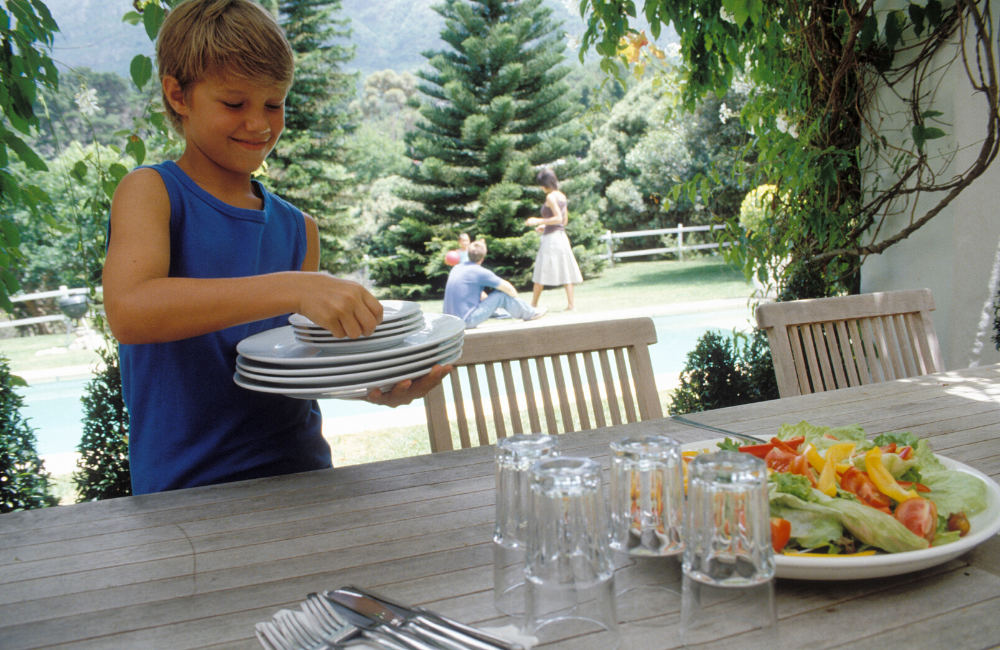“Set the table”
상 차리다, 식탁을 준비하다
(Mary is cooking dinner and talking to her sons, Tom and Ken … )
(매리가 저녁을 만들면서 아들 탐과 켄에게 얘기한다 …)
Mary: I hope you two are hungry.
매리: 너희 배고프지.
Ken: I‘m so hungry. I could eat a horse.
켄: 너무 배고파서 뭐라도 잡아먹겠어요.
Tom: Me too.
탐: 저도요.
Mary: I’m almost done.
매리: 거의 다 됐다.
Tom: I‘ll set the table.
탐: 제가 식탁을 차릴게요.
Ken: I’ll get the plates.
켄: 제가 접시를 내어오죠.
Mary: I made so much food.
매리: 음식을 아주 많이 만들었어.
Ken: That‘s good. We’ll have leftovers for tomorrow.
켄: 좋아요. 내일까지 먹을 게 남으니까.
Tom: Where‘s the salt and pepper?
탐: 소금하고 후추는 어디 있죠?
Mary: It’s on the shelf above the stove. All right, dinner is ready.
매리: 스토브 위 선반에 있어. 좋아, 저녁이 다 준비됐다.
기억할만한 표현
*(one) could eat a horse: 배가 고파 죽겠다
“The kids are so hungry, they could eat a horse.”
(아이들이 배가 너무 고파서 죽겠대요.)
* (one) is almost done: 거의 다 되다, 끝나다
“I‘m almost done with the computer. You can have it in five minutes.”
(전 컴퓨터 거의 다 썼습니다. 5분 후면 당신 거에요.)
*leftovers: 남은 음식
“Are there any leftovers from last night’s dinner?”
(어제 저녁 먹고 남은 것 없어요?)
California International University
www.ciula.edu (213)381-3710









![[엘렌쇼] 띄어쓰기를 잘해야 하는 이유](https://english.koreadaily.com/wp-content/uploads/2016/07/hqdefault-4-100x70.jpg)